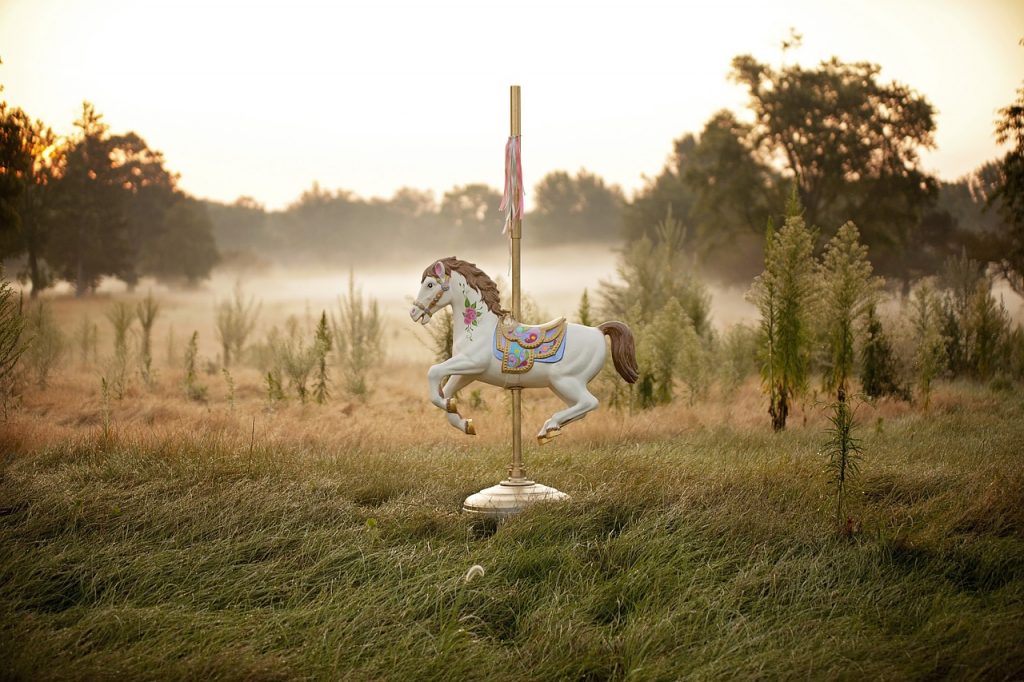Tuesdays with Tony
There’s a problem in equine veterinary medicine that rarely gets discussed. The bodies. The reality is that horses are really big, and it’s going to take a decent amount of work to manage the body after they pass. It’s not a pleasant topic, but it’s an important one. And since it’s Halloween week, and I’ve got this bad cat sense of humor, I felt it would be a good time to talk about this grave topic.

The Elephant in the Room
Let’s start with the obvious problem: the size. Horses are, generally, pretty darn big. When they pass, we are left with a very large body to manage. The goldfish option is definitely no good. Then there’s the pet cemetery in the back yard, but unless you have a really big backyard, that’s not going to work. There’s cremation, but you need to find a crematorium that’s big enough. And finally, there’s the someone who picks them up and takes them away option. Even in Marion County, where a lot of horses live, this last option has long been the most used option. However, a few things have happened to make this option more and more expensive.
Residues
One of the primary ways horses have been euthanized for many, many years is with an overdose of a drug called pentobarbital. This an anesthetic which has many nice properties for humane euthanasia. First, because it’s an anesthetic, the horse falls asleep first, then gently passes away over a very short time frame. Next, it is relatively inexpensive in large quantities, because again, being the realistic cat I am, you need large quantities of anything for horses because they’re big. Finally, while pentobarbital is a controlled drug, which means it has special paperwork to go with it, most humans don’t really want to use it to get high so my Docs don’t have to worry too much about that.
Here comes the but. But, pentobarbital residues have shown up in some places they weren’t supposed to, namely pet food. Personally, I was horrified by this. Anything that jeopardizes my food supply is very not OK with this fat cat. Pentobarbital also stays in the environment a really, really long time. This means those horses that are buried are contaminating groundwater near their bodies. The environment can handle this if you have one or two buried on a large property, but get three or four in a small area, and it’s not so good. Here in Florida we are especially sensitive to this, since our groundwater level is so high you can find standing water in a hole 6” deep. That’s the water we drink.
Are there good options?
Yes! Many really smart people have been working on this issue, and have come up with very humane euthanasia methods that don’t require drugs which leave bad residues. Now, these people aren’t as smart as a cat, but I do think they’ve done a pretty good job. Veterinarians the world over have also been discussing what to do with the bodies, even without the residue, and have a few options. Some readily available, some needing a little more work. Let’s start with cremation. Step one is to find a crematorium which can handle something as large as a horse. They are out there. However, it is really pricey at around $1500. Cremation also carries its own environmental issues.
Composting of the remains is possible, but requires a large volume of compostable material like wood mulch to go under and over the body. This is being explored in many horse-dense areas like Marion County, but this cat doesn’t know of any commercial-level horse composting facilities. The other option is burial, but with one of the alternative euthanasia methods. Finally, there is the county landfill option. While this one doesn’t sound very good to you horse owners, it is often the best, most cost-effective option available. In north central Florida, this option has been the go-to, but now it’s getting harder and harder to find as many landfills have stopped accepting them.
Want to help come up with better options? Check with my Docs, or your veterinarian, to see what alternatives are being explored in your area. I will say I learn some interesting things sitting at the front desk. I never thought of this issue until the price to pick up a body recently went up $200 in one day because of increased landfill fees. That makes euthanasia and removal cost about $800. That’s a big bill on a tough day, that no one wants to make harder. Rest assured my Docs are trying their hardest to work with options in the area to come up with the best solutions possible.
Until next week,
~Tony
P.S. Did you know that Dr. Lacher’s husband wrote a book? It’s called Adventures of the Horse Doctor’s Husband. It’s been the #1 best selling book on Amazon in the horse care category for a few months now. Apparently that’s a big deal, so I thought I would mention it. You can click on the banner below to learn more about it. Okay, I’m going to take a nap.
Tuesdays with Tony is the official blog of Tony the Clinic Cat at Springhill Equine Veterinary Clinic in Newberry, Florida. If you liked this blog, please subscribe below, and share it with your friends on social media! For more information, please call us at (352) 472-1620, visit our website at SpringhillEquine.com, or follow us on Facebook!
[jetpack_subscription_form title="Subscribe to Whinny's Wisdoms"]

